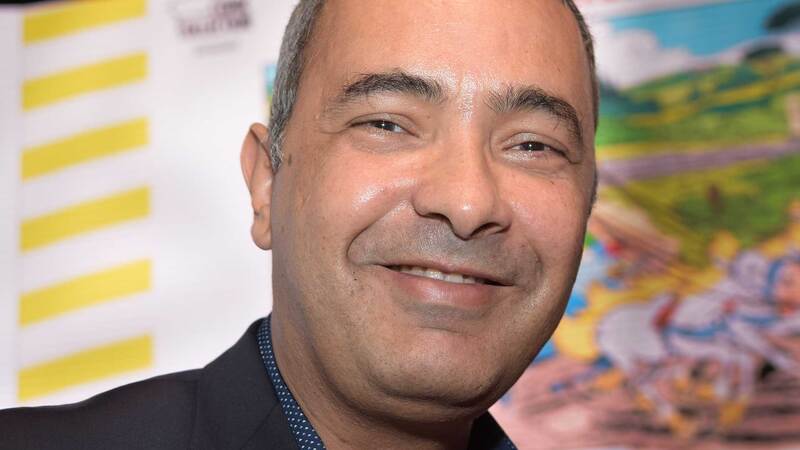You are viewing your 1 free article this month. Login to read more articles.
Why are we squeezing creative writing out of schools?
Publicist and debut children's author Liz Hyder calls on publishers to be more vocal about the negative impacts of creative writing being sidelined by the current education system.
Being able to write well is one of the greatest gifts that anyone can ever be given. We know from various studies that reading encourages empathy, but there’s a strong argument for creative writing doing so too. When you fall down through the pages of a book into another world, engaging your imagination to make those characters come alive, you travel alongside them, experiencing their emotions, their hopes and dreams, their loves and lives as if they were entirely real. Imagine then, how much deeper that engagement, that emotional involvement becomes when you yourself are the puppet master, creating your own characters, walking in their footsteps in a world that didn’t exist before you invented it…
Whether it’s organising armies from little lead figures, creating worlds in Minecraft or simply playing with dolls and other toys, children are brimful of imagination and creativity. Why then are we squeezing creative writing out of schools? It feels extraordinarily short-sighted, cruel even, to make children learn about subjunctive clauses when they are only just working out how to write in joined-up letters. Our education system – as many other authors have pointed out numerous times – seems to be focused more than ever on tick-box exercises rather than actual education, much to the frustration of hard-working and over-stretched teachers across the land.
Often, when I run a creative writing workshop for kids, young people say how much they dislike writing but when questioned, what they usually mean is that they dislike the technicalities they are being taught. Instead of being able to write freely, to experiment and make mistakes, to learn through doing, they are taught the building blocks first and foremost. To them, writing is about sentence structure, not about story or character or, most importantly, imagination. It’s little surprise then that a fifth of teachers are planning on leaving the profession within the next two years. Those I know who are bravely, doggedly fighting on are tearing their hair out at an inflexible and retrograde curriculum that works only for the few, already gifted, children.
On a shelf at home, I’ve got six ‘writing’ exercise books from when I was at junior school. Now a source of endless amusement, they also shine a light on how much more creative freedom my generation were allowed. There are stories about wish-giving talking rabbits, the life of an oak tree, why swallows migrate and a trip to the zoo. There are stories about The Iron Man (definitely my earliest fanfic), greedy dormice and a boy in my class, Daniel Fawcett, who I had a very strong crush on ever since he played Joseph in the Nativity. These stories are short, sometimes incoherent, often unintentionally hilarious to an adult’s eye, but all of them are marked encouragingly, black ticks for bits that the ever-patient teacher at the time had liked and gentle corrections of spelling and grammar. Yet the support for creative writing that I enjoyed back then has, in the main, been crushed out of existence in today’s rigid tick-box system – without it, where will the next generation of storytellers come from? I’ll tell you – they’ll come from public schools, they’ll come from wealthy families who can pay for extra tutorials, they’ll come from families where the parents are already engaged with the arts. They won’t come from diverse backgrounds, they’ll come from privilege.
By next year, creativity will be in the top three most important skills for future jobs according to the World Economic Forum. Whilst I see and hear authors regularly standing up to be counted against the pressure on teachers and the restrictive curriculum, I cannot for the life of me recall any publishers or group of industry names standing up for creative writing in schools and colleges. I cannot recall a letter in the Times signed by named publishers or a think piece in the national papers by industry figures or indeed anything but the sound of silence from the industry as a whole.
The publishing industry cannot and should not have to make up for the defects in the current education system but it could certainly be more vocal about the problems of sidelining creativity. It could, as an industry, add its voice to the clamour that’s already out there, joining with the teachers and authors who are speaking up in defence of creative writing. With many of those working in publishing having themselves benefitted from a less rigid and more liberal curriculum at school, shouldn’t they perhaps be fighting for others to have the same rights that they enjoyed?
It should go without saying that all children should be given the support they need to write creatively, to tell their own stories and to make up worlds. Only a handful may ever become writers themselves but instilling a love of creative writing in as many kids as possible is surely beneficial for all of us. After all, the future of our industry – not just writers, but future readers, future buyers of books – absolutely depends on it.
Liz is a writer, creative workshop leader and freelance PR consultant in the arts. Her debut novel Bearmouth is published by Pushkin Press on 19th September 2019.
















